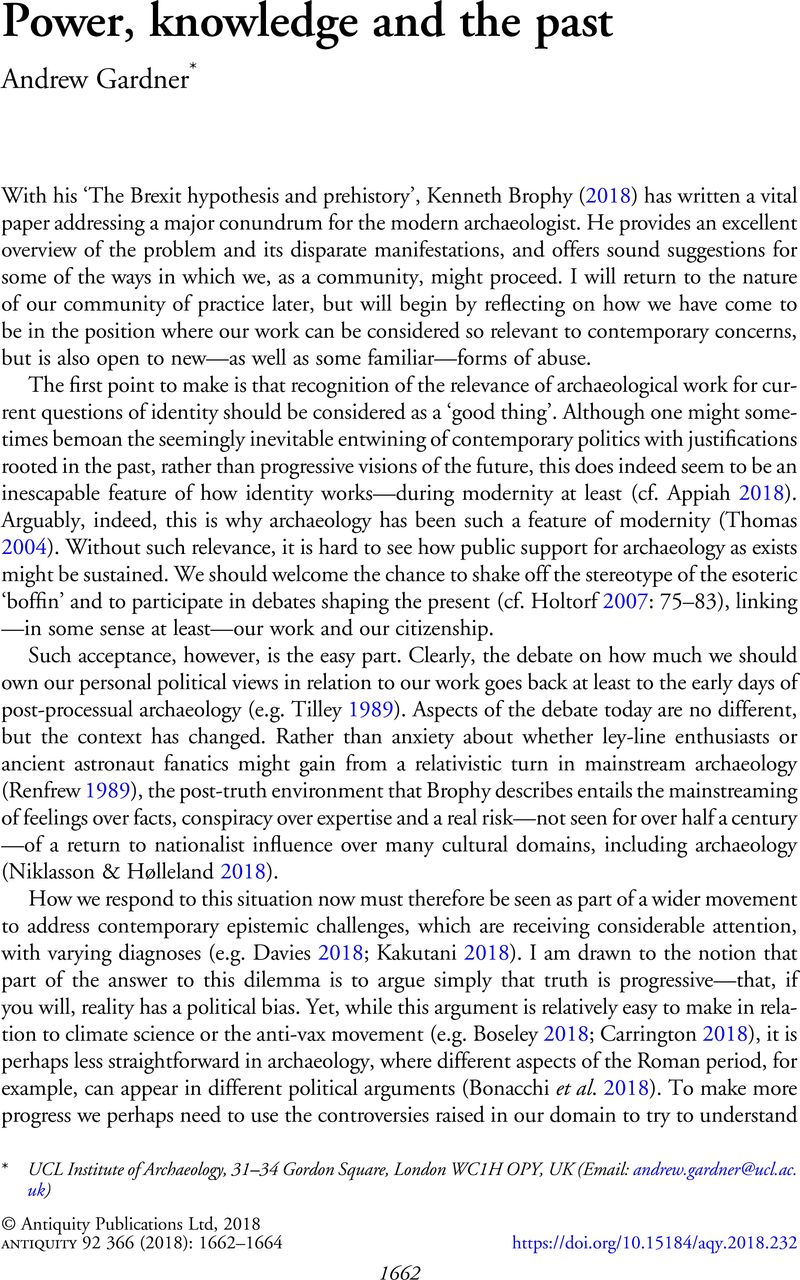Crossref Citations
This article has been cited by the following publications. This list is generated based on data provided by Crossref.
Hølleland, Herdis
and
Niklasson, Elisabeth
2020.
How (Not) to “Study Up”: Points and Pitfalls When Studying International Heritage Regimes.
Journal of Field Archaeology,
Vol. 45,
Issue. 3,
p.
140.
Bonacchi, Chiara
and
Krzyzanska, Marta
2021.
Heritage-based tribalism in Big Data ecologies: Deploying origin myths for antagonistic othering.
Big Data & Society,
Vol. 8,
Issue. 1,
Hofmann, Daniela
Hanscam, Emily
Furholt, Martin
Bača, Martin
Reiter, Samantha S.
Vanzetti, Alessandro
Kotsakis, Kostas
Petersson, Håkan
Niklasson, Elisabeth
Hølleland, Herdis
and
Frieman, Catherine J.
2021.
Forum: Populism, Identity Politics, and the Archaeology of Europe.
European Journal of Archaeology,
Vol. 24,
Issue. 4,
p.
519.
Hanscam, Emily
and
Buchanan, Brian
2023.
Walled in: borderlands, frontiers and the future of archaeology.
Antiquity,
Vol. 97,
Issue. 394,
p.
1004.
Nión-Álvarez, Samuel
2024.
Texts, Politics and Identities: New Challenges on Iron Age Ethnicity. A Case from Northwest Iberia.
Cambridge Archaeological Journal,
Vol. 34,
Issue. 4,
p.
567.
Lee, Antony
2024.
‘Critically disruptive’ museum interpretation as a methodology for challenging popular perceptions of Roman Britain.
Museum Management and Curatorship,
p.
1.



